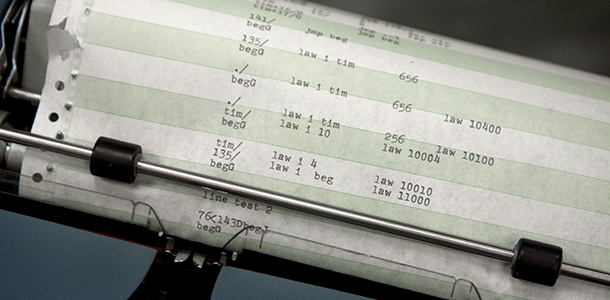
Proposed law would make unsearchable document formats not count as “open data.” (Photo Credit: Marcin Wichary/Flickr)
More and more local governments in California are embracing transparency by making previously inaccessible government data available online for public scrutiny and use. A cornerstone of good government, transparency can foster accountability, fuel entrepreneurship and improve government performance. But the publication of data alone doesn’t inherently make them useful. Although local agencies are releasing more data than ever before, a lot is lying fallow because they’re often in an unsearchable file format, such as in a PDF, making the information difficult to find and analyze.
Legislation introduced by Assemblymember Brian Maienschein (R-San Diego) seeks to help local governments unlock the power of open data to improve results, reduce costs, and rebuild public trust. Leading CA Fwd’s government transparency efforts, Robb Korinke answered a few questions about how AB 169 would boost transparency at the local level:
What is the goal of AB 169 and how does it aim to achieve it?
AB 169 is designed to establish key standards and definitions for “open data” in California. While not requiring local agencies to move immediately towards open data, it gives those agencies designing open data programs a common target to hit in terms of the formatting and management of that information. It is critical because it will ensure that as more and more local governments release information, this data is interoperable and available without cost to the public.
How would AB 169 define an “open format?”
The bill would require information published online by local agencies and designated as “open” to be in a format that is “retrievable, downloadable, indexable, and electronically searchable by commonly used Internet search applications,” as well as machine-readable. Importantly, it also sets forth that this information be “available to the public free of charge and without any restriction that would impede the reuse or redistribution.”
Why does California need to set an open data format?
Key information maintained by local governments, from business licenses to council agendas and budgets, are frequently kept in file formats that make them difficult to find or analyze using contemporary Internet tools and other technology. The current guidelines for posting these documents predate the Xerox machine and thus are inadequate in the modern era.

